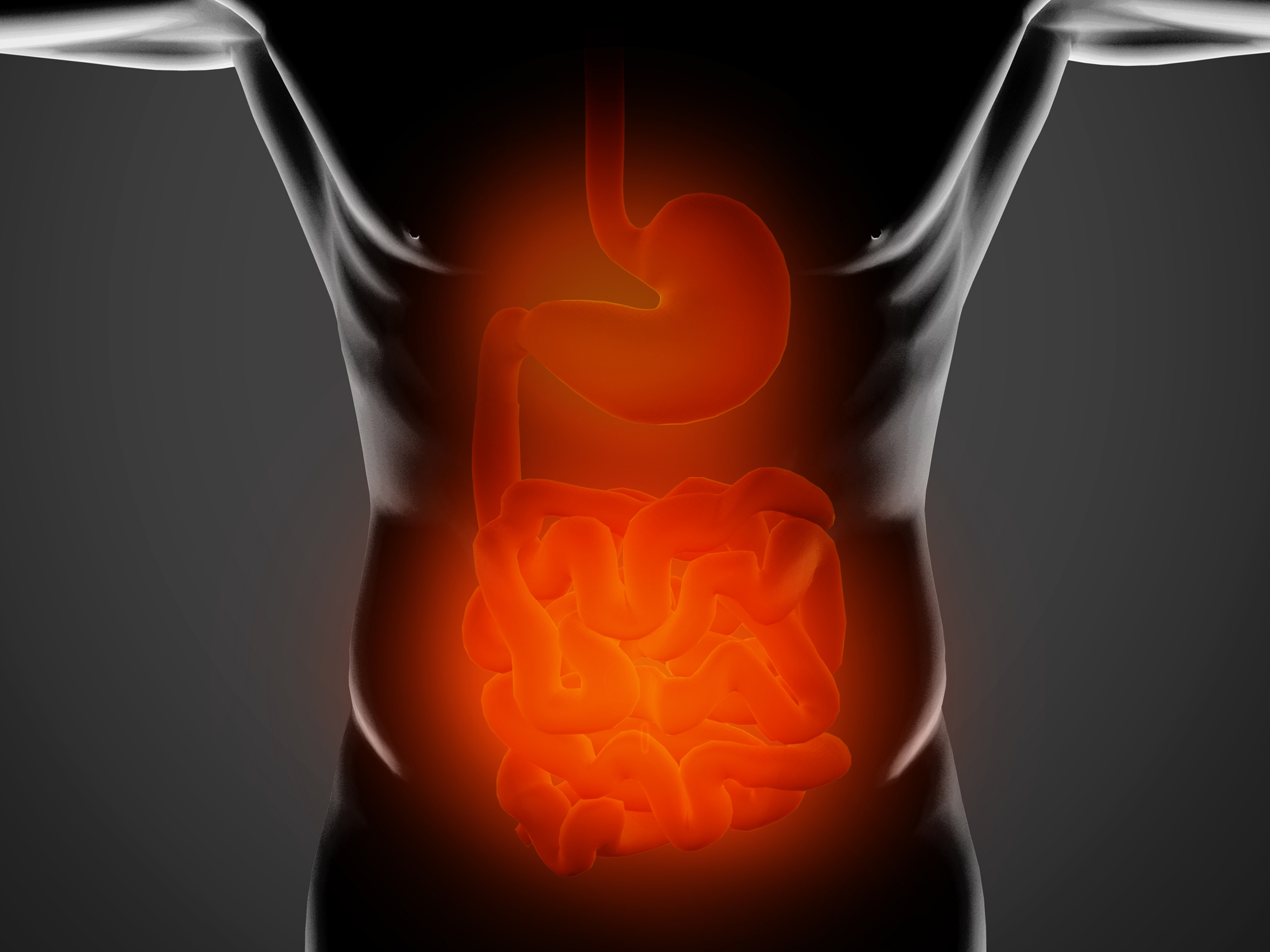Get Easy Health Digest™ in your inbox and don’t miss a thing when you subscribe today. Plus, get the free bonus report, Mother Nature’s Tips, Tricks and Remedies for Cholesterol, Blood Pressure & Blood Sugar as my way of saying welcome to the community!
3 ways digestion breaks your health and 8 tips to fix it

Perhaps you’ve heard the old saying, “Death begins in the colon.”
In integrative medicine, we often say instead, “Health begins in the colon.”
These sentiments reflect age-old principles held by traditional medical systems from around the world, which position digestive health as the key to longevity and vitality.
Now, a large and fast growing body of published data has substantiated this critical link, demonstrating the direct relationships between digestion and cognitive health, immune response, hormone balance and more. So when we experience persistent gut symptoms, it’s critical we take action.
However, poor digestion can have much deeper consequences than a stomach ache. The digestive tract’s primary purpose is to extract nutrition from food and discard the rest. How efficiently the stomach, intestines and other digestive organs process nutrition has a profound impact on quality of life. People who eat healthy diets but have poor digestion may be allowing nutrition to pass them by. Those who eat primarily processed food and have other unhealthy habits are making a bad situation worse.
In addition to poor nutrient absorption, bad digestion can lead to acid reflux, indigestion, irritable bowel disease and other conditions and can have a direct impact on the nervous system, emotional health, immunity, hormones and more. In other words, nutrition offers a bounty of health opportunities. If we take care of the center, the rest will quite often take care of itself.
One of the first steps in repairing digestive health is to look at what it is exactly we’re trying to digest. Because in many cases, digestive difficulties and other ongoing health issues are a direct result of inflammatory reactions to common trigger foods, such as gluten, corn, eggs or dairy. These inflammatory responses, termed “food sensitivities,” may not cause full-blown allergic reactions, but they nevertheless trigger fiery flare-ups that damage the digestive wall over time, leading to what’s called leaky gut syndrome.
1. Insensitive foods
Food allergies and sensitivities are problematic because they can be difficult to diagnose. Consider the array of potential symptoms: rashes, diarrhea, constipation, achy joints, exhaustion, asthma, sinusitis, migraines and depression. Anyone of these issues could be caused by a dozen or more different conditions.
A closer look at the biology behind food sensitivities gives us more insight into the issue. Food sensitivities are akin to an autoimmune response, with the immune system treating certain food items as foreign invaders. As the immune response continues, the small intestine becomes inflamed, and over time, the chronic inflammation makes intestinal lining cells larger and more porous. Sometimes these cells can no longer form an effective barrier between the gut and the bloodstream. When that happens, undigested proteins, as well as pathogens that would normally stay isolated in the gut, leak into the blood, further compounding the inflammatory immune response.
This is leaky gut syndrome, and it can affect numerous organs and systems throughout the body. With the immune system on constant alert and chronic inflammation setting fires in the gut, the body becomes vulnerable to allergies, autoimmune conditions and a number of other degenerative issues related to chronic inflammation. Without intervention, the problem usually gets worse.
For those facing food sensitivities and leaky gut syndrome, the first step towards regaining good health is identifying the foods that are causing the problem and eliminating them. For information on doing an elimination diet, click here.
2. Bacteria: Friend or foe?
We have been indoctrinated, from a very young age, to believe that bacteria are the enemy. We see this in our overreliance on antibiotics and antibacterial soaps and our relentless, sometimes obsessive, focus on cleanliness. While this phobia can be justified by some dangerous bacteria — E. coli, Salmonella, Staphylococcus, to name a few — we should never forget the crucial role friendly bacteria play in maintaining our health.
Humans and the bacteria that inhabit our guts have developed a symbiotic relationship over thousands of years. Good bacteria manufacture vitamins, boost immune cells and prevent harmful pathogens from being absorbed into the body.
New research is highlighting another important role for beneficial bacteria — enhancing our mental health. Though the mechanisms are not completely understood, it seems that the digestive system functions as a sort of secondary brain. In fact, the gastrointestinal system is the most abundant source of regulatory neurotransmitters outside the brain. For example serotonin, a brain chemical that influences mood has its greatest concentrations in the gut. If we take a moment to think about it, the digestive process includes both physical digestion of nutrients and mental digestion of information, thoughts and ideas. This is why in traditional Chinese medicine, we treat the digestive system as part of a therapeutic program for memory and issues with mental function.
So if you thought the digestive tract is solely focused on digestion, think again.
3. Befriend your stomach
Given that good digestion and healthy flora enhance nutrition, protect from disease and even support emotional health, it only makes sense to incorporate foods and supplements that enhance these features.
As noted, gut flora play a crucial role in overall health. Probiotics and prebiotics support these healthy bacteria in two critical ways. Probiotics provide live strains of the friendly bacteria that are so crucial to digestive, immune and neurological health. Prebiotics ensure that friendly flora have a nourishing environment to thrive. In addition, proteolytic enzymes, which break down proteins into their component parts, increase digestive capacity and improve nutrient absorption.
Cultured, fermented foods (see sidebar) such as yogurt, sauerkraut, kefir, kim chi, and others, are rich in digestive enzymes and probiotic bacteria that can help to improve digestive function.
A critical nutrient, zinc is required to make many digestive enzymes and also plays a role in fast-growing intestinal cells. Zinc is also involved in hormone regulation, immune health and neurological function.
Numerous herbs can also play a beneficial role in digestion.
- Chinese cardamom increases antioxidant levels and boosts immunity.
- Cinnamon soothes discomfort, improves digestive capacity, boosts immunity and balances blood sugar.
- Ginger root improves digestion, reduces inflammation, increases antioxidant levels and boosts immunity.
- Chamomile and mint are especially comforting for the stomach and contribute to healthy digestion. They ease stomach irritation and relax the smooth muscles of the digestive system.
- In addition, fish oil reduces inflammation and helps heal the gastrointestinal tract lining, improve nutrient absorption, balance hormones, bolster neurological function and boost immunity.
Fiber keeps things moving, preventing your colon from collecting toxins, which can build up and cause disease. Fruits, such as prunes, and gluten-free grains, such as quinoa, legumes and flax seeds, all include ample amounts of healthy fiber.
In my practice, I recommend a comprehensive integrative digestive formula. This unique formula contains a blend of herbs, botanicals, nutrients and enzymes to ease occasional digestive discomfort and enhance digestive capacity over the long term. Ingredients such as pomegranate seed, licorice root, cardamom, digestion-specific medicinal mushrooms, plant-based enzymes and minerals and other natural compounds work together to increase nutrient absorption, improve digestive efficiency, ease occasional nausea, gas or heartburn, and offer daily support for overall digestive function.
Tips for optimal digestion
It’s simply not enough to change what we eat; we also must address how we eat. Many factors influence the digestive system. Some of the most common causes of digestive discomfort include poor diet, late meals, rushed eating, allergies and most of all, stress. Simply taking the time to slow down, chew your food long enough, and eat healthy foods in a mindful way can greatly improve digestive health and relieve tension.
Specific measures which support digestive health:
- Avoid eating two to three hours before bedtime.
- Have your doctor test for food allergies and sensitivities.
- Drink plenty of filtered water and herbal teas to stay hydrated.
- Take a daily supplement to help enhance digestive function. I recommend Integrative Digestive Formula which blends 19 natural ingredients to support multiple areas of digestive health.
- Find healthy ways to relieve stress, such as meditation, exercise and laughter.
- Practice yoga: it will improve digestion and reduce stress.
- Limit over-the-counter and prescription drugs.
- Reduce caffeine and alcohol, which damage friendly digestive bacteria.
Good nutrition is vital to good health. And good digestion is vital to good nutrition. But there’s a lot more to it. It’s easy to think of digestion as a closed system that supports the rest of the body with essential nutrients but doesn’t really go beyond that. Now we are finding that the digestive, endocrine, neurological, immune and other systems are highly interconnected and woven closely together.
Perhaps the most significant takeaway is that we must listen to what our bodies are telling us. Until recently, it was easy to dismiss a mild stomach ache or indigestion as an inconvenience, rather than a health issue. The truth is it could be either one. But now that we have a better understanding of the complementary relationship between the digestive system and the rest of the body, we have new opportunities and resources to intervene and promote overall health in the process.












